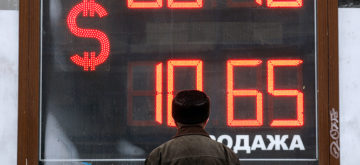
Nick Serpe talks to Nicholas Mulder, the author of The Economic Weapon: The Rise of Sanctions as a Tool of Modern War in Dissent:
Nick Serpe: Some form of economic warfare has been around since the origin of warfare itself—the siege, the blockade. What is distinctive about sanctions, and their place in the politics of war and peace?
Nicholas Mulder: The idea of applying pressure to civilian societies and economies has been around as a practice and an idea for a very long time, but it was traditionally seen as part of the repertoire of war. Sanctions lift that technique from the realm of wartime into peacetime. That’s why the birth of modern international institutions after the First World War is so important, because they really affected that switch.
Sanctions are also often confused with economic restrictions that have other kinds of political or economic purposes—things like tariffs and protectionism. We’re in an era of general increasing economic nationalism in the wake of the 2008 crash and the COVID-19 pandemic. Tariffs are a matter of domestic regulation and protecting one’s own market from foreign competition, but sanctions are about trying to influence and deprive other territories.
More here.
